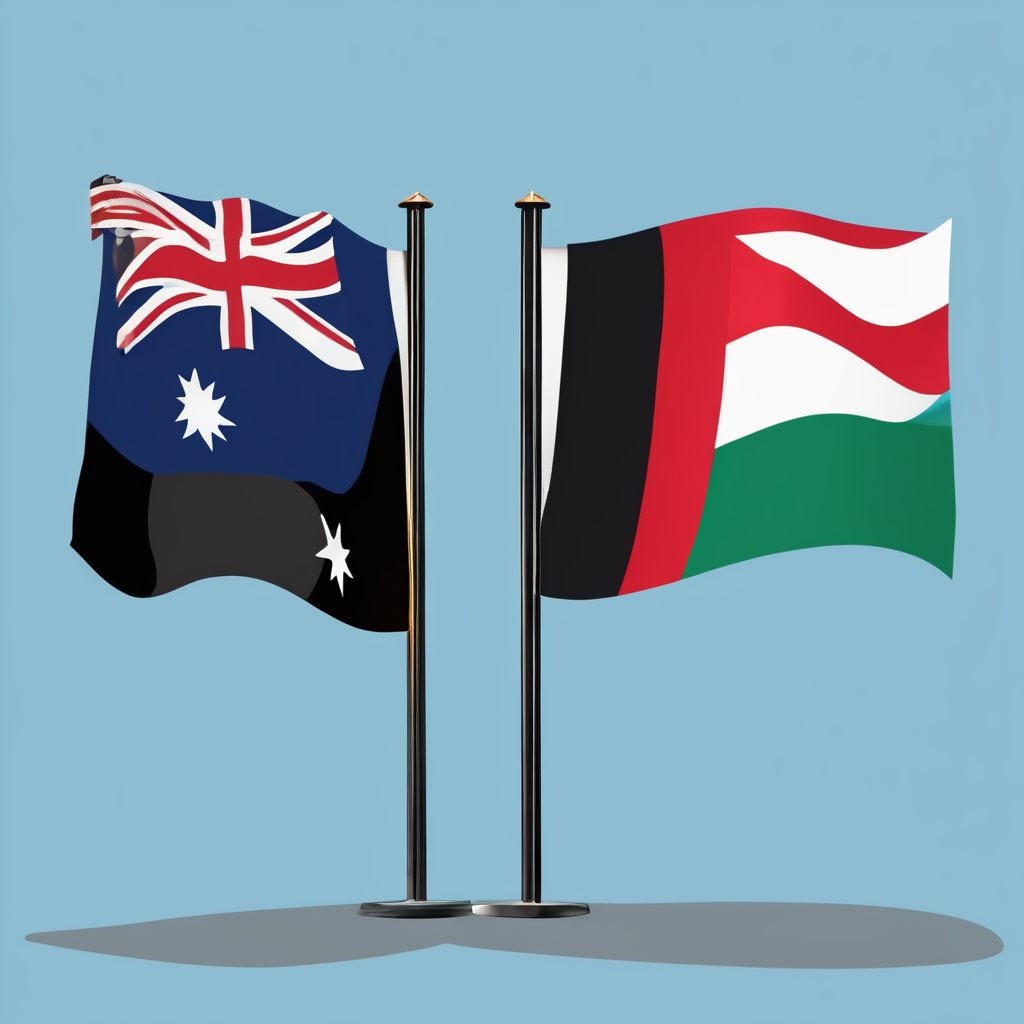Australia has officially recognized the state of Palestine, marking a substantial shift in its long-standing foreign policy. This recognition aligns Australia with over 140 United Nations member states and recent recognitions by the UK and Canada, aiming to revive efforts towards a two-state resolution amidst the ongoing humanitarian crisis in Gaza.
Prime Minister Anthony Albanese announced this recognition while attending the United Nations General Assembly in the United States. Both Albanese and Foreign Minister Penny Wong have reiterated that this decision is consistent with Australia’s commitment to ensuring peace and security for both the Israeli and Palestinian peoples through a two-state solution.
The Australian government has laid out that achieving a two-state solution necessitates an immediate ceasefire in Gaza and the liberation of hostages held by Hamas. The government stated unequivocally that Hamas, which effectively governs Gaza, should not have any role in a future Palestinian state. This initiative follows the Palestinian Authority’s acknowledgment of Israel’s right to exist and its pledge to democratic reforms and elections aligned with international standards.
Australia’s diplomatic decision has faced opposition in some areas. Israel’s Prime Minister, Benjamin Netanyahu, condemned the recognition, suggesting it rewards terrorism. Similarly, the Executive Council of Australian Jewry expressed disappointment, questioning Palestine’s current capacity for governance.
The timing of this move is delicate, as Australia is navigating its relationship with the United States, particularly concerning defense agreements like the AUKUS trilateral pact. This decision may lead to complex discussions with U.S. allies, given Australia’s stance.
International reactions vary, with Palestinian officials advocating for fairness in the recognition process and urging countries to see beyond contentious issues. Australia’s recognition has the potential to bolster international efforts calling for increased humanitarian aid and solutions to the Gaza conflict, with global leaders emphasizing the need to address the suffering of civilians in the region urgently.
Australia’s recognition of Palestine marks a significant diplomatic decision, reinforcing its commitment to a two-state solution. It reflects a broader global push for peace amidst complex geopolitical circumstances, underscoring the necessity of sustained international engagement and dialogue.
